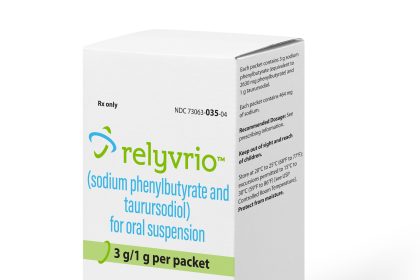Moderates Seek Changes to Drug Pricing Proposal

A group of moderate Democrats led by Rep. Scott Peters sought on Tuesday to change the House debate on how prescription drug prices are set in the U.S., arguing sweeping proposals put forward by progressives could threaten passage of the $3.5 trillion budget bill.
The push came as the House Energy and Commerce Committee continued to mark up its portion of the massive bill which Senate Democrats ultimately plan to pass using the filibuster-proof budget reconciliation process.
The current language in the bill would allow direct government negotiations over the prices of hundreds of drugs. Beyond that, it would also penalize manufacturers that raise prices faster than inflation and apply both policies to private insurance plans as well as Medicare.
But Peters and other moderate Democrats, including Kurt Schrader, of Oregon, and Kathleen Rice, of New York, argued Tuesday that the current language goes too far and threatened to withhold their support unless the prescription drug language is toned down.
Instead, they asked the committee to consider a far narrower set of pricing policies that they said would be both more fiscally sound and more likely to pass and make its way to the president’s desk for his signature.
On Tuesday, Peters and Schrader introduced the Reduced Costs and Continued Cures Act which they say will lower patients’ prescription drug costs and protect our nation’s ability to find cures.
“The plan is the first ever to cap out-of-pocket costs for seniors, addresses loopholes in the health care system and provides the most generous benefits to the poorest Americans,” they said in a joint press release.
Reps. Rice, Stephanie Murphy, D-Fla., and Lou Correa, D-Calif., are also original cosponsors of the plan.
According to a release from Peters’ office, the Reduced Costs and Continued Cures Act:
- Provides a yearly out-of-pocket cap in Medicare for the expense of prescription drugs for those who need assistance most:
- $1200 annual out-of-pocket cap for those at 300% or less of the Federal Poverty Level;
- $1800 annual out-of-pocket cap for those at 300 to 400% of the Federal Poverty Level; and
- $3100 annual out-of-pocket cap for those at or above 400% of the Federal Poverty Level.
- Includes a smoothing mechanism that minimizes the impact of prescription drug costs on seniors with fixed incomes by ensuring those with expensive annual drug costs can pay their out-of-pocket expenses throughout the calendar year via monthly installments instead of all at once.
- Establishes a $50 per month out-of-pocket maximum for insulin.
- Bases beneficiary cost-sharing at the pharmacy counter on the post-rebate price of a drug rather than the original list price to further reduce the cost burden on patients.
- Allows Medicare to negotiate drug prices in Part B for products that no longer have exclusivity and for which there is no competition on the market.
- The Secretary of the Department of Health and Human Services can enter negotiations with manufacturers of these products that are seen to be extraordinarily expensive over the last decade to secure price concessions of between 25 and 35%.
- Requires greater transparency and increases insurer responsibility for the high cost of drugs.
- Promotes more low-cost options for patients by bolstering competition in the marketplace.
- Prevents drug companies from gaming the system by curbing anti-competitive practices and closing loopholes.
But the Peters-led plan is a non-starter for progressives, who argue that it lets the drug industry off easy and would generate far less savings to apply to other health priorities.
A committee staffer described the situation on Tuesday as “fluid.”
Despite the dust up, House Speaker Nancy Pelosi circulated a letter to the Democratic Caucus Tuesday afternoon in which she said she believes it is still on track to wrap up business on the bill on time.
Individual committees are expected to report their portions to the House Budget Committee by Wednesday so the panel can begin assembling the legislation for final floor action later this month.























